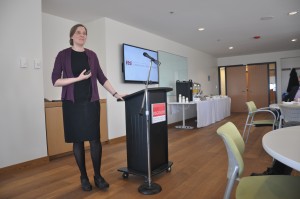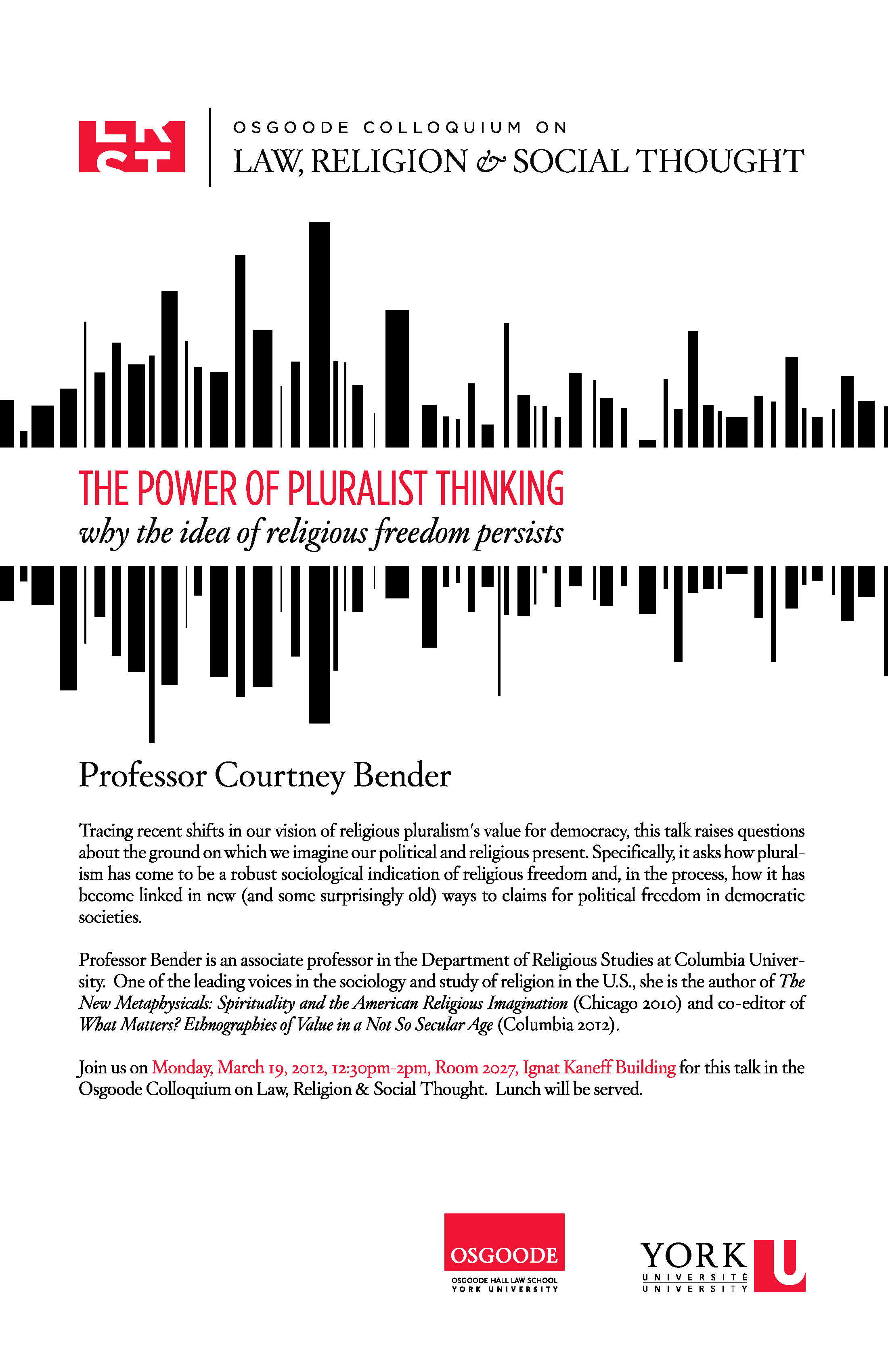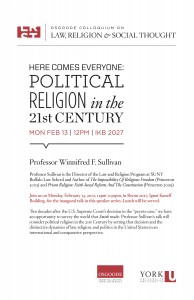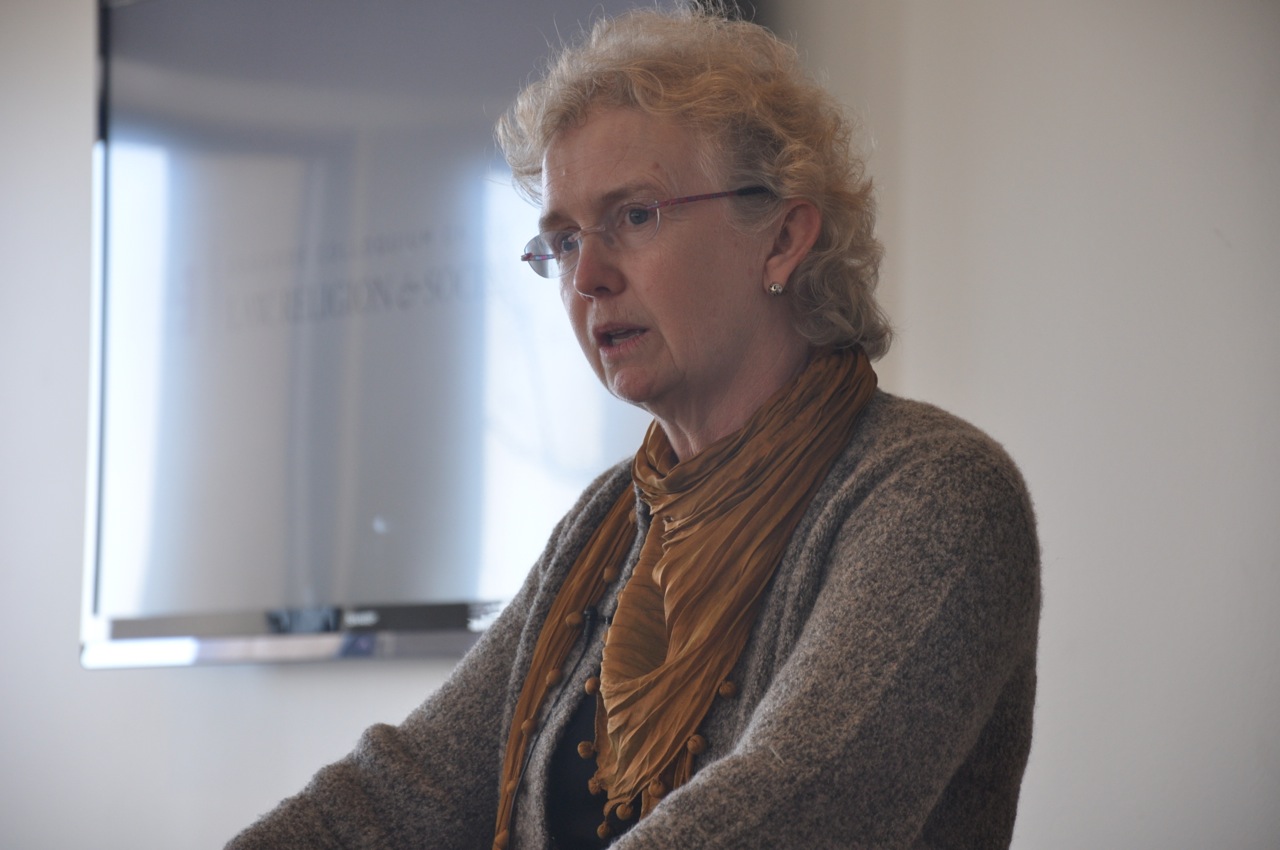“The Power of Pluralist Thinking: Why the Idea of Religious Freedom Persists”
Professor Courtney Bender (Columbia)
Tracing recent shifts in our vision of religious pluralism’s value for democracy, this talk raises questions about the ground on which we imagine our political and religious present. Specifically, it asks how pluralism has come to be a robust sociological indication of religious freedom and, in the process, how it has become linked in new (and some surprisingly old) ways to claims for political freedom in democratic societies.
 Courtney Bender is an associate professor in the Department of Religious Studies at Columbia University. One of the leading voices in the sociology and study of religion in the U.S., she is the author of The New Metaphysicals: Spirituality and the American Religious Imagination (Chicago 2010) and co-editor of What Matters? Ethnographies of Value in a Not So Secular Age (Columbia 2012).
Courtney Bender is an associate professor in the Department of Religious Studies at Columbia University. One of the leading voices in the sociology and study of religion in the U.S., she is the author of The New Metaphysicals: Spirituality and the American Religious Imagination (Chicago 2010) and co-editor of What Matters? Ethnographies of Value in a Not So Secular Age (Columbia 2012).



 Winnifred Sullivan is the Director of the Law and Religion Program at SUNY Buffalo Law School and Author of The Impossibility Of Religious Freedom (Princeton 2005) and Prison Religion: Faith-based Reform And The Constitution (Princeton 2009).
Winnifred Sullivan is the Director of the Law and Religion Program at SUNY Buffalo Law School and Author of The Impossibility Of Religious Freedom (Princeton 2005) and Prison Religion: Faith-based Reform And The Constitution (Princeton 2009).